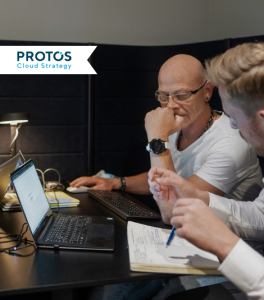
Nicholas Turley, head of product at ChatGPT, brought a sensation to the opening of the WELT AI Summit a few days ago: On stage he announced a new AI model – one that is supposed to solve logical problems using arguments. The exclusive look into the future of artificial intelligence was still secret at the time; it was only two days later that OpenAI publicly announced its AI “o1”. In the interview, Turley explains where the limits of artificial intelligence currently lie – and how he ended up in the USA with OpenAI.
Mr. Turley, you are product manager of ChatGPT at OpenAI – and a jazz musician. How did you approach your training?
It depends on what you count as training. When I was at high school in Itzehoe, I tried a lot of things, especially music. Jazz was and is my great passion. Later, I first studied philosophy and then fell in love with computer science and building technology products.
You went to the USA after graduating from high school. Why?
When I was 16 or 17 years old, I decided to try things out first – and that's easier at US universities than in Germany, where you make up your mind very quickly. I had many different academic interests at the time. I liked philosophy, but also technical subjects like computer science, and in the academic system over there you can combine the two much better.
Do you want to come back?
I often think that maybe I could come back one day – especially if I have children. Germany simply has a very high quality of life. I really like what I'm doing right now. But every time I'm here I feel that Germany is part of my identity. I'm very lucky to be able to travel here often – I get the best of both worlds. And there is an incredibly good jazz scene in Berlin.
Read too
How much does jazz have to do with AI development?
I've been thinking about it… I think great software development can be similar to making music together, at least in jazz. When you develop software together, especially with OpenAI, different disciplines come together – there are researchers, designers, product people, engineers. The way we work together is often reminiscent of jazz because we have to learn from each other and think in a very interdisciplinary way. Just like jazz bands listening to each other and improvising.
The jazz scene in Germany is good, what about the AI scene?
I am excited about developments in Germany and Europe. Germany is one of the three largest ChatGPT markets, so we have a lot of users here. And many German companies, such as Zalando and Axel Springer SE (Editor's note: which also includes the world and the start-up scene)develop great applications based on our technology. There is so much energy and entrepreneurial spirit. I may be biased, but I really believe that Germany will compete successfully.
At OpenAI there are many German names above the patents. Do many German AI talents come to you after their studies?
We of course have a number of Germans at OpenAI, and I think that applies to the entire industry. But I also think that there is talent everywhere, and these people are very mobile. Germany has a phenomenal education system, and that is why you see German scientists all over the world.
And will they come back at some point? Is Silicon Valley losing its appeal?
I have personally seen some people come back. Germany is becoming more and more attractive for entrepreneurs and bright minds. And I think you could probably say the same thing about other EU countries and the UK. But I wouldn't characterize it as a countermovement to Silicon Valley, but rather as a transatlantic collaboration. There's so much happening in AI in San Francisco and the surrounding area right now, there's still so much momentum there.
Read too
What has to happen here in Germany so that we can keep up with the AI revolution?
I look at the overall trend, not whether there is a big unicorn startup here today. And I just see so much momentum. I wouldn't be surprised if a next generation of AI startups were born here in Berlin.
What is still missing here? Is there a lack of capital or computing power?
We hope that most people won't have to worry about computing power because they can use and customize pre-built models. They can develop their own AI products based on Foundation Models or fine-tune these models with their own data. The average AI user doesn't think about available computing power, but rather how to use an existing model for a use case and its data. What matters is a startup ecosystem and venture capital. And the attitude is important: you have to be willing to take risks because it is a new technology.
Is this setting missing here?
Silicon Valley is a place full of entrepreneurial spirit. And people always talk about very, very long-term, transformative ideas. I think part of the magic of the Valley is, honestly, the way things are talked about there. But over time you have to separate substance from communication. And that is Germany's strength.
What does this mean for AI use?
I see a lot of companies adopting AI now. But when you do that, you have to be prepared to think about how AI will fundamentally change your business. You have to change processes. Because if you just surgically integrate AI into all existing processes, you get the same thing that you can use in your company today with chatbots in the browser, but that's not quite the revolution.
How many large language models do we need?
Things are changing quickly. Just last year we had all sorts of different models – picture in, picture out, language in, language out. Now all of these capabilities live in multimodal base models like “4o” – we call them omni models. We are on the verge of another transition as these models become much better at thinking. So it's really hard to predict. But I am confident that there will be multiple players. We are already seeing that.
The models still fail – they sometimes hallucinate things or are simply wrong.
We have monitoring systems in use and try a lot to make these models reliable. But I admit that this technology is not perfect. She continues to invent things. And that may limit their usefulness in some use cases. We need to learn to choose the right use case for the current state of the art.
Read too
They have just introduced a new model, “o1”, which is said to be much better at answering logical questions. How does it relate to this?
Thinking represents the beginning of a new era in AI. By “thinking” before answering, o1 can help solve more complex problems and make answers more robust. It is particularly good at coding and math. But it also answers questions about the social sciences. We expect it will be particularly useful for users in science and healthcare. We have a very early version in the world now and are excited for people to try it out.
What advice would you give to a young German person who wants to enter the field of AI now?
That's a great question. My biggest advice is to find what makes you curious, because human curiosity isn't going away. In a world where you have an oracle that can answer virtually anything, the ability to ask the right questions is fundamental. I don't think you necessarily need to study computer science – unless it interests you. Personally, I find computer science extremely fascinating, but I think AI will soon be accessible to so many more people than just computer scientists, and you can engage with it in many ways. Essentially I would say, and this is how I designed my own education, you should always pursue the things that interest you. I also think that studying in the United States really helped me because I was free to explore my path. In Germany I would have had to make more decisions in advance and maybe I wouldn't have thought about going towards AI.
This interview first appeared on Welt.
Source: https://www.businessinsider.de/gruenderszene/technologie/chatgpt-produktchef-ich-glaube-wirklich-dass-deutschland-erfolgreich-mitspielt/





